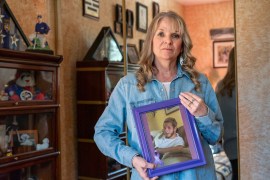Indian Government, IAVI To Partner on HIV/AIDS Vaccine Research, Development
The Indian Government and the International AIDS Vaccine Initiative have signed an agreement to partner on HIV/AIDS vaccine research and development, officials announced Wednesday, ANI/Malaysia Sun reports (ANI/Malaysia Sun, 5/2). Under the new Indian Medicinal Chemistry Programme -- co-sponsored by IAVI and the Department of Biotechnology at India's Ministry of Science and Technology -- Indian and U.S. scientists will work to accelerate the discovery of an HIV/AIDS vaccine and develop new concepts for the "next generation" of vaccines, the Hindu Business Line reports (Hindu Business Line, 5/3). The Medicinal Chemistry Programme's initial task will be to collaborate with scientists from other research laboratories to develop new HIV antigens, ANI/Sun reports. At later stages, the partners expect to work with an Indian manufacturer to assist with high throughput synthesis, antigen chemical characterization and potency evaluation of proposed HIV vaccine candidates, ANI/Sun reports. Indian Science and Technology and Earth Sciences Minister Kapil Sibal said he and officials from the Ministry of Health and Family Welfare also have joined to support the vaccine program (ANI/Malaysia Sun, 5/2). The program will complement the work of IAVI's Neutralizing Antibody Consortium, a group of scientists working to address challenges associated with designing a vaccine that elicits neutralizing antibodies against HIV, the Hindu Business Line reports (Hindu Business Line, 5/3).
Comments
IAVI President and CEO Seth Berkley said, "This new partnership will broaden ongoing efforts in India to find an AIDS vaccine," adding, "Through this new agreement, we will continue to tap some of the best minds in biotechnology to create new paradigms for AIDS vaccine design." DBT Secretary Maharaj Bhan said, "India's Department of Biotechnology is delighted to be a part of the global search for an efficacious AIDS vaccine," adding, "Only through these kinds of biotechnology ventures, involving international collaborations and the sharing of scientific knowledge, can we hope to solve the complex biomedical problems of our times" (IAVI release, 5/2).






